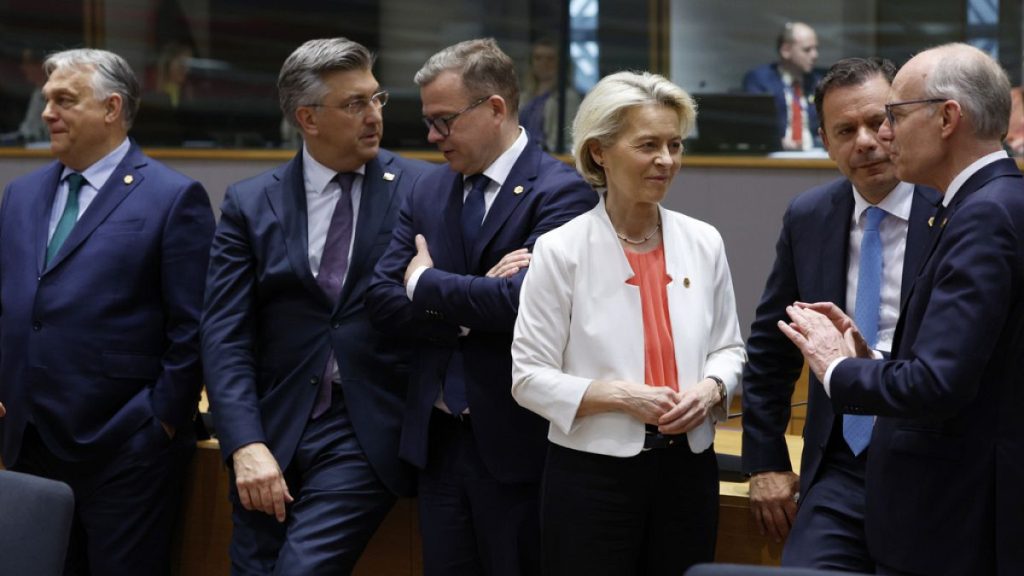EU leaders will be meeting in Brussels to finalize and adopt the Strategic Agenda, which will guide the work of the next European Commission from 2024-2029. The ongoing conflict between Russia and Ukraine will heavily influence the agenda, impacting areas such as energy, economy, and security. Despite some watering down of parts of the Strategic Agenda following farmers’ protests, the Green Deal will remain central, focusing on competitiveness and security. The shift toward implementation of green policies has been highlighted as a key priority for the EU going forward.
Geopolitical circumstances beyond the Russia-Ukraine conflict will also play a crucial role in shaping the Strategic Agenda. China’s trade policies, the need for partnerships in Africa and South America, and reducing dependencies on the US will be key considerations for EU leaders. The potential impact of the US elections, particularly if Donald Trump returns to the White House and withholds support within NATO, is another important factor to be taken into account. The aim is to create a strong, secure, prosperous, and competitive Europe through enhanced industrial capacity.
An important question that EU leaders will need to address is how to fund their ambitions outlined in the Strategic Agenda. Reforms to revenue sources, including better use of the European budget, a greater role for the European Investment Bank, and the possibility of creating new debt after the Next Generation EU program ends in 2026 will need to be considered. The draft agenda also touches on strengthening the rule of law, preparing for enlargement, and potentially incorporating new members such as Ukraine, Moldova, and Western Balkan countries.
The chapter titled “Free and Democratic Europe” within the Strategic Agenda aims to bolster the rule of law within the EU. Enlargement discussions will require candidate countries to align with EU law standards, necessitating significant reforms. Decision-making processes within the EU may also need to be re-evaluated, particularly in terms of unanimity on foreign policy, as the club potentially expands further. The upcoming summit in Brussels on June 27-28 will mark the finalization and adoption of the Strategic Agenda, following deliberations on key issues related to finance, geopolitics, and enlargement.
Overall, the EU’s Strategic Agenda for 2024-2029 will be heavily influenced by ongoing events such as the Russia-Ukraine conflict, China’s trade policies, and potential shifts in the US administration. The focus on the Green Deal, competitiveness, security, and reducing dependencies on external allies will drive decision-making within the EU. Reforms to revenue sources, strengthening the rule of law, and preparing for potential enlargement will be key priorities for EU leaders. The adoption of the agenda at the upcoming summit will set the course for the EU’s political roadmap for the next five years.


